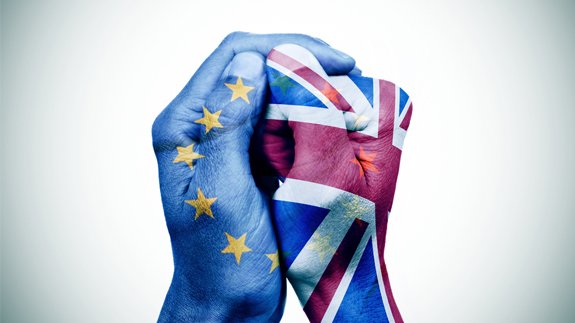The UK must continue to collaborate with the EU on energy and climate policies post-Brexit if it is to keep bills down.
Think tank Green Alliance warns failure to co-operate with the EU after the UK leaves the region will “unnecessarily complicate” the nation’s emissions reductions and consumers could be hit by an increase in energy costs.
Its latest report highlights five main areas at risk:
Electricity interconnection: It currently meets around 7% of the UK’s power needs, suggesting a doubling of existing interconnection with the EU could save up to £1 billion a year in reduced wholesale prices by 2020. However, leaving the EU’s internal energy market would put this at risk.
Northern Ireland’s integration with the Republic of Ireland: If the UK leaves the internal energy market, it will disrupt the £6 billion Irish energy market.
“Favourable” finance terms from the European Investment Bank: Current loans are worth £8 billion, underpinning the success of the UK offshore wind and electric vehicle sectors.
Maintaining product and vehicle standards which UK car manufacturers have to comply with: They export 80% of their vehicles, half to EU consumers. The report warns divergence in vehicle and other product standards could undermine UK exporters and risks turning the nation into a “dumping ground” for inefficient and shoddy products.
Delivering the carbon budgets: Around 55% of emissions reductions to 2030 are expected to be delivered through EU-derived legislation.
The report proposes a “Paris co-operation track” – using the climate deal for future collaboration with the EU on climate and energy.
It also suggests retaining access to the internal energy market for electricity and gas to maintain barrier-free trade and staying aligned with EU product standards and environmental principles.
Chaitanya Kumar, Senior Policy Adviser on low carbon energy and author of the analysis said: “Sustained co-operation will mean the UK can continue to stand with the EU at the forefront of international leadership on climate.
“It will also maximise the benefits of low carbon trade with Europe and support the shared vision of long term energy security. Not least, it will secure clean and cheap energy for UK consumers.”





